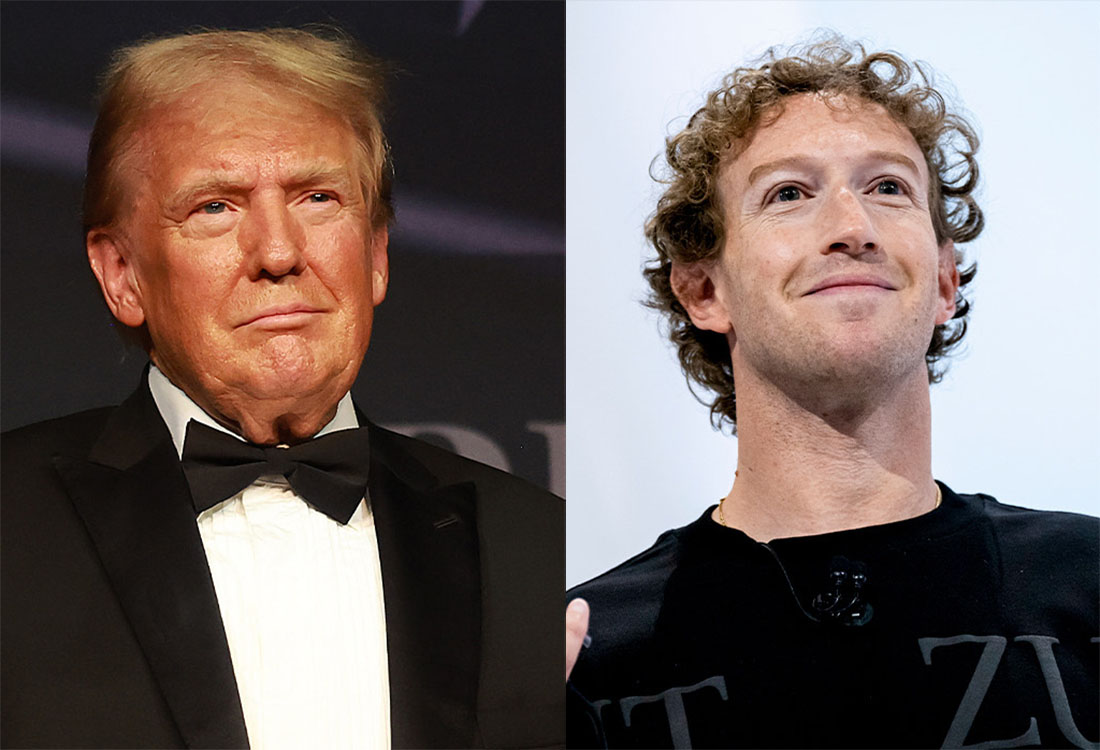Photo Credit: Getty Images
Meta CEO Mark Zuckerberg recently dined with President-elect Donald Trump at Mar-a-Lago, signaling a potentially transformative relationship between Big Tech and the incoming administration. The meeting, initiated by Zuckerberg himself, represents a calculated engagement amid a historically contentious backdrop.
Previously, Trump had been vocally critical of Zuckerberg, describing Facebook as "a true Enemy of the People" and accusing the platform of electoral interference. The tension stemmed from the controversial "$400 million-plus Zuckerbucks" initiative during the 2020 election cycle, which Republicans viewed as a partisan attempt to influence voting dynamics.
Meta spokesperson Andy Stone framed the dinner as an opportunity to discuss "the future of American Innovation," emphasizing Zuckerberg's strategic intent to establish a collaborative dialogue. Stephen Miller, the incoming White House deputy chief of staff, characterized the meeting as Zuckerberg's commitment to supporting "national renewal" under Trump's leadership.
The rapprochement follows a series of notable developments. In July, Meta rolled back restrictions on Trump's Facebook and Instagram accounts, reinstating his access to nearly 54 million followers. Zuckerberg's public statements have also softened, notably describing Trump's survival of an assassination attempt as "one of the most badass things" he'd witnessed.
During their Mar-a-Lago encounter, the two leaders reportedly exchanged pleasantries, with Zuckerberg congratulating Trump on his electoral victory. This diplomatic approach marks a significant departure from previous antagonistic interactions, suggesting a pragmatic realignment of technological and political interests.
The meeting also reflects a broader trend among tech leaders. Prominent figures like Bill Gates have similarly extended congratulations to Trump, indicating a potential shift in Silicon Valley's political engagement strategy. Zuckerberg's move appears calculated—maintaining corporate neutrality while establishing potential collaborative channels.
Miller emphasized that while Zuckerberg "has his own interests and agenda," the Meta CEO seems keen on positioning himself as a supportive partner to the incoming administration. This strategic positioning could provide Meta with crucial insights and potential advantages in an evolving regulatory landscape.
The outcome of this high-profile meeting remains to be seen, but it represents a significant moment in the evolving narrative of tech-political relationships.


